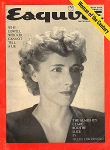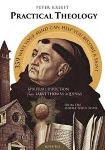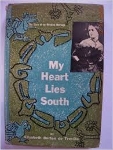Bruiser Cabe
Over
at First
Things
George Weigel offers "Books for Summer Reading – Deepening a Thoughtful, Catholic Faith." Slightly intimidating framing, I
thought. And after looking at it, I came away with the impression
Weigel may be something like the Catholic version of his hero George
Will, and NeoCaths (if that is what they are) as a group pretty close
to Reagan-era Republicans in their ethos. For better and worse.
Weigel plugs Father Robert Barron’s Catholicism
series [I'd call it Catholicism,
Sanitized for the Public Schools Humanities Class,
if not simply Catholicism
Decaffeinated.
I'd also note a rose window for a book cover is
probably the least imaginatively-inspired choice for packaging since
Baker Book introduced its equally lackluster efforts for
its Catholic
Commentary on Sacred Scripture.
But there I go being spoilport in the middle of a new spingtime].
Weigel also singles out Divided
Friends: Portraits of the Roman Catholic Modernist Crisis in the
United States,
by William L. Portier. How, one wonders, does this compare with
Thomas Woods' revealing The
Church Confronts Modernity?
The comparison might produce a telling list of what does or does not
differentiate Traditionalist priorities from those of NeoCaths, not
to mention make clear that affection for the Latin Rite as a mere
cultural artifact is quite the rhetorical bogeyman these days in
thoughtful Catholic discourse. With those ramblings as a backdrop,
and in honor of then Cardinal Joseph Ratzinger, I thought I’d
attempt my very own Counter
Syllabus for
summer readers,
which follows....
In
terms of theology, Fr. Walter Farrell’s Companion to the
Summa is dated but remains one of the most accessible guides
to Aquinas,  and subsequently to basic Catholic thought. No less a
literary critic than the late Wilfrid Sheed called his four volume
set “magisterial,” and that was his verdict after lapsing
in faith. It is available online, and can also be acquired cheaply
via internet used bookstores. Another last century Thomist who after
Vatican II was surreptitiously consigned to the Catholic attic like
an embarrassing uncle was Reginald Garrigou-Lagrange. As a theologian
whose output was remarkable for both its precision and scope, his
reputation deserves rehabilitation, and Aidan Nichol’s Reason
with Piety is a nice start at that task. Even better is
Richard Peddicord’s Sacred Monster of Thomism. Though
not out until October,
and subsequently to basic Catholic thought. No less a
literary critic than the late Wilfrid Sheed called his four volume
set “magisterial,” and that was his verdict after lapsing
in faith. It is available online, and can also be acquired cheaply
via internet used bookstores. Another last century Thomist who after
Vatican II was surreptitiously consigned to the Catholic attic like
an embarrassing uncle was Reginald Garrigou-Lagrange. As a theologian
whose output was remarkable for both its precision and scope, his
reputation deserves rehabilitation, and Aidan Nichol’s Reason
with Piety is a nice start at that task. Even better is
Richard Peddicord’s Sacred Monster of Thomism. Though
not out until October,  Peter Kreeft’s Practical Theology:
Spiritual Direction from St. Thomas looks to be a fitting third installment to such a course of readings. Slightly outside of the Angelic’ Doctor’s immediate pull but still with his gravitational field is Martin Mosenbach. A novelist and not a theologian, his reflections on the interconnection of liturgy and life may therefore be more immediately accessible to many than Thomistic constructs. His Heresy of Formless displays those qualities that distinguish period classics: original thought, grand subject, and exceptional writing (even in translation). This is one supporters of the Extraordinary Rite ought to have on their shelves.
Peter Kreeft’s Practical Theology:
Spiritual Direction from St. Thomas looks to be a fitting third installment to such a course of readings. Slightly outside of the Angelic’ Doctor’s immediate pull but still with his gravitational field is Martin Mosenbach. A novelist and not a theologian, his reflections on the interconnection of liturgy and life may therefore be more immediately accessible to many than Thomistic constructs. His Heresy of Formless displays those qualities that distinguish period classics: original thought, grand subject, and exceptional writing (even in translation). This is one supporters of the Extraordinary Rite ought to have on their shelves.
 and subsequently to basic Catholic thought. No less a
literary critic than the late Wilfrid Sheed called his four volume
set “magisterial,” and that was his verdict after lapsing
in faith. It is available online, and can also be acquired cheaply
via internet used bookstores. Another last century Thomist who after
Vatican II was surreptitiously consigned to the Catholic attic like
an embarrassing uncle was Reginald Garrigou-Lagrange. As a theologian
whose output was remarkable for both its precision and scope, his
reputation deserves rehabilitation, and Aidan Nichol’s Reason
with Piety is a nice start at that task. Even better is
Richard Peddicord’s Sacred Monster of Thomism. Though
not out until October,
and subsequently to basic Catholic thought. No less a
literary critic than the late Wilfrid Sheed called his four volume
set “magisterial,” and that was his verdict after lapsing
in faith. It is available online, and can also be acquired cheaply
via internet used bookstores. Another last century Thomist who after
Vatican II was surreptitiously consigned to the Catholic attic like
an embarrassing uncle was Reginald Garrigou-Lagrange. As a theologian
whose output was remarkable for both its precision and scope, his
reputation deserves rehabilitation, and Aidan Nichol’s Reason
with Piety is a nice start at that task. Even better is
Richard Peddicord’s Sacred Monster of Thomism. Though
not out until October,  Peter Kreeft’s Practical Theology:
Spiritual Direction from St. Thomas looks to be a fitting third installment to such a course of readings. Slightly outside of the Angelic’ Doctor’s immediate pull but still with his gravitational field is Martin Mosenbach. A novelist and not a theologian, his reflections on the interconnection of liturgy and life may therefore be more immediately accessible to many than Thomistic constructs. His Heresy of Formless displays those qualities that distinguish period classics: original thought, grand subject, and exceptional writing (even in translation). This is one supporters of the Extraordinary Rite ought to have on their shelves.
Peter Kreeft’s Practical Theology:
Spiritual Direction from St. Thomas looks to be a fitting third installment to such a course of readings. Slightly outside of the Angelic’ Doctor’s immediate pull but still with his gravitational field is Martin Mosenbach. A novelist and not a theologian, his reflections on the interconnection of liturgy and life may therefore be more immediately accessible to many than Thomistic constructs. His Heresy of Formless displays those qualities that distinguish period classics: original thought, grand subject, and exceptional writing (even in translation). This is one supporters of the Extraordinary Rite ought to have on their shelves.
Catholic
have their own celebrities, and in his day Fulton J. Sheen published
so many books one might be forgiven for dismissing him as a brand.
But at his best he was also a brilliant communicator. His best
includes not only the justifiably popular Life of Christ
but two much lesser known items, God and Intelligence (also
a course in Thomism!), and The Mystical Body of Christ.
Given all the contemporary confusion over the place of reason and the
place of the laity, both are timely and (despite some caricatures of
FJS) not at all treacly.
Converts
get a lot of attention – and a lot of static – from fellow
Catholics. Thus what is inexplicable about Benedict J. Groeschel’s
benchmark I Am With You Always is the almost total lack
of attention it’s received since it was released four years ago. It
is presented as famous the spiritual director’s “Study of the
History and Meaning of Personal Devotion to Jesus Christ for
Catholic, Orthodox and Protestant Christians,” and it’s
irenic, eye-opening, and inspiring. If the saner version of Louis
Bouyer has a contemporary successor, I’d argue Fr. Groeschel is the
man. Another ecumenical expedition guide worth considering is David Wells: in God and the Whirlwind he surveys our modern (Postmodern? Millennial? Whatever…) landscape from a perspective orthodox Catholics may be surprised they so heartily share.
Several
biographies provide beach reading of a little less demanding order
than theology. Trad Catholics might be excused for asking, “Can
anything good can come out of Cambridge?”, or wondering what could
possibly have ended up between the covers of any biography on  Pius
XII that’s published by Harvard Press. But Robert A. Ventresca’s
Soldier of Christ will surprise them with its
even-handed, mostly positive account. Another, less heroic if
arguably more high profile Catholic also receives a full-fledged
treatment in Sylvia Morris’s Clare Booth Luce: The Price of
Fame. The story careens back and forth between gossip sheet
and cautionary tale, with Luce’s conversion to the Church providing
a moving centerpiece. A name that also ought to ring a bell with
reading Catholics is that of Pat Buchannan, and the controversial
commentator tackles a different political life in Nixon: The
Greatest Comeback. Say what you will about these subjects or
authors, the stories and writing on display in both books are pretty
mesmerizing. On a quite different note: an enjoyable easy read (not
to mention a counterpoint to the current immigration strife) is
Elizabeth Borton de Treviño’s
Pius
XII that’s published by Harvard Press. But Robert A. Ventresca’s
Soldier of Christ will surprise them with its
even-handed, mostly positive account. Another, less heroic if
arguably more high profile Catholic also receives a full-fledged
treatment in Sylvia Morris’s Clare Booth Luce: The Price of
Fame. The story careens back and forth between gossip sheet
and cautionary tale, with Luce’s conversion to the Church providing
a moving centerpiece. A name that also ought to ring a bell with
reading Catholics is that of Pat Buchannan, and the controversial
commentator tackles a different political life in Nixon: The
Greatest Comeback. Say what you will about these subjects or
authors, the stories and writing on display in both books are pretty
mesmerizing. On a quite different note: an enjoyable easy read (not
to mention a counterpoint to the current immigration strife) is
Elizabeth Borton de Treviño’s  My Heart Lies South: The
Story of My Mexican Marriage. She studied at Boston’s
Conservatory of Music, spent five seasons in Hollywood interviewing
film personalities, and was then dispatched as a reporter to Mexico.
There, her life as career woman was interrupted by the romance that
provides the pivot point of this book. Borton wrote for younger
readers (she won a Newberry Medal for another effort), but that only
adds to the charm. Elsewhere, younger readers will not find
themselves alone in appreciating the window onto faith in Japan
opened via Cathy Brueggmann Biel’s The Samurai and the Tea.
This one is fictional biography for kids, but it’s carried off in
fine form. Also in his usually fine form is George Rutler, heir to
the literary mantle of William F. Buckley and Richard John Neuhaus.
Not quite biography, his Principalities
and Powers: Spiritual Combat 1942-1943,
is WWII history written with the theological virtue of hope
and the stylistic virtue of verve.
My Heart Lies South: The
Story of My Mexican Marriage. She studied at Boston’s
Conservatory of Music, spent five seasons in Hollywood interviewing
film personalities, and was then dispatched as a reporter to Mexico.
There, her life as career woman was interrupted by the romance that
provides the pivot point of this book. Borton wrote for younger
readers (she won a Newberry Medal for another effort), but that only
adds to the charm. Elsewhere, younger readers will not find
themselves alone in appreciating the window onto faith in Japan
opened via Cathy Brueggmann Biel’s The Samurai and the Tea.
This one is fictional biography for kids, but it’s carried off in
fine form. Also in his usually fine form is George Rutler, heir to
the literary mantle of William F. Buckley and Richard John Neuhaus.
Not quite biography, his Principalities
and Powers: Spiritual Combat 1942-1943,
is WWII history written with the theological virtue of hope
and the stylistic virtue of verve.
 Pius
XII that’s published by Harvard Press. But Robert A. Ventresca’s
Soldier of Christ will surprise them with its
even-handed, mostly positive account. Another, less heroic if
arguably more high profile Catholic also receives a full-fledged
treatment in Sylvia Morris’s Clare Booth Luce: The Price of
Fame. The story careens back and forth between gossip sheet
and cautionary tale, with Luce’s conversion to the Church providing
a moving centerpiece. A name that also ought to ring a bell with
reading Catholics is that of Pat Buchannan, and the controversial
commentator tackles a different political life in Nixon: The
Greatest Comeback. Say what you will about these subjects or
authors, the stories and writing on display in both books are pretty
mesmerizing. On a quite different note: an enjoyable easy read (not
to mention a counterpoint to the current immigration strife) is
Elizabeth Borton de Treviño’s
Pius
XII that’s published by Harvard Press. But Robert A. Ventresca’s
Soldier of Christ will surprise them with its
even-handed, mostly positive account. Another, less heroic if
arguably more high profile Catholic also receives a full-fledged
treatment in Sylvia Morris’s Clare Booth Luce: The Price of
Fame. The story careens back and forth between gossip sheet
and cautionary tale, with Luce’s conversion to the Church providing
a moving centerpiece. A name that also ought to ring a bell with
reading Catholics is that of Pat Buchannan, and the controversial
commentator tackles a different political life in Nixon: The
Greatest Comeback. Say what you will about these subjects or
authors, the stories and writing on display in both books are pretty
mesmerizing. On a quite different note: an enjoyable easy read (not
to mention a counterpoint to the current immigration strife) is
Elizabeth Borton de Treviño’s  My Heart Lies South: The
Story of My Mexican Marriage. She studied at Boston’s
Conservatory of Music, spent five seasons in Hollywood interviewing
film personalities, and was then dispatched as a reporter to Mexico.
There, her life as career woman was interrupted by the romance that
provides the pivot point of this book. Borton wrote for younger
readers (she won a Newberry Medal for another effort), but that only
adds to the charm. Elsewhere, younger readers will not find
themselves alone in appreciating the window onto faith in Japan
opened via Cathy Brueggmann Biel’s The Samurai and the Tea.
This one is fictional biography for kids, but it’s carried off in
fine form. Also in his usually fine form is George Rutler, heir to
the literary mantle of William F. Buckley and Richard John Neuhaus.
Not quite biography, his Principalities
and Powers: Spiritual Combat 1942-1943,
is WWII history written with the theological virtue of hope
and the stylistic virtue of verve.
My Heart Lies South: The
Story of My Mexican Marriage. She studied at Boston’s
Conservatory of Music, spent five seasons in Hollywood interviewing
film personalities, and was then dispatched as a reporter to Mexico.
There, her life as career woman was interrupted by the romance that
provides the pivot point of this book. Borton wrote for younger
readers (she won a Newberry Medal for another effort), but that only
adds to the charm. Elsewhere, younger readers will not find
themselves alone in appreciating the window onto faith in Japan
opened via Cathy Brueggmann Biel’s The Samurai and the Tea.
This one is fictional biography for kids, but it’s carried off in
fine form. Also in his usually fine form is George Rutler, heir to
the literary mantle of William F. Buckley and Richard John Neuhaus.
Not quite biography, his Principalities
and Powers: Spiritual Combat 1942-1943,
is WWII history written with the theological virtue of hope
and the stylistic virtue of verve.
Two last
items for those who may enjoy Twilight Zone type tales for waveside
conversation fodder. Rosaria
Champagne Butterfield has a striking name and an even more
striking conversion story to go along with it. The Secret
Thoughts of an Unlikely Convert: An English Professor's Journey Into
Christian Faith is also very much about her journey out of
homosexuality. As such, at a juncture where reparative therapy is
today vilified, her account seems to come out of an alternative
universe and is one over which it’s hard to remain indifferent.
Randall Sullivan’s The Miracle Detective is now more
than a few years old, but it too features a conversion, as well as
good writing, Medjugorge madness, Rolling Stone Magazine, and
an interview with then-Cardinal Ratzinger inside the Vatican. What’s
not to love? (Don’t answer that one…)

1 comment:
Richard Peddicord's book attempts to "rehabilitate" Lagrange by fishing for thoughts and remarks of his that in some stilted way "anticipate" those of the heroes of the aggiornamento. In doing so he proves an unreliable guide to Lagrange and an unreliable commentator on the Church both then and now. In short, the operative word here is UNRELIABLE.
I have a copy of his book. It features a picture of Lagrange on the cover shooting the photographer [perhaps it was Chenu?] a most malignant and unflattering expression. This, plus, the title, must have sent the Aidan Nicholses of the academe giggling -- perhaps it was a signal to them that Peddicord was just mining a new market, not attempting to upset anyone by actually challenging wobbly teachings of the last several decades. In any event, subsequent editions of his book have a different, more flattering picture of Lagrange on the cover.
An unreliable text inside, and a sniggering, graceless jape at the subject's expense on the outside: what more could you really expect from nouvelle scholarship?
Post a Comment